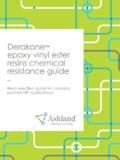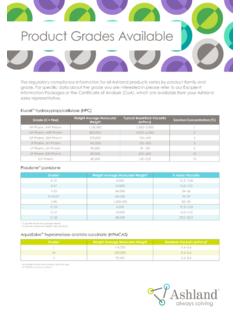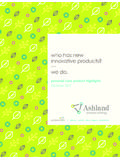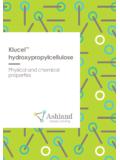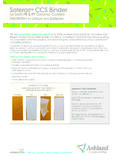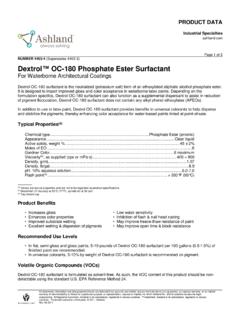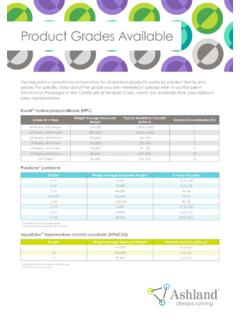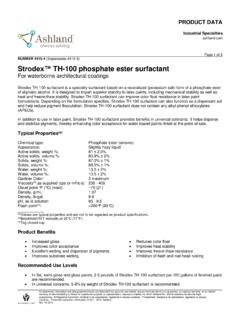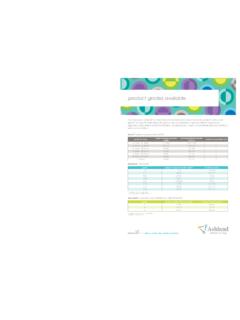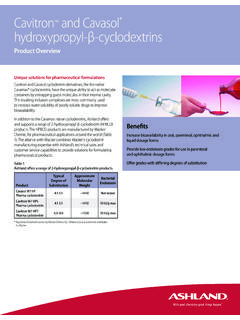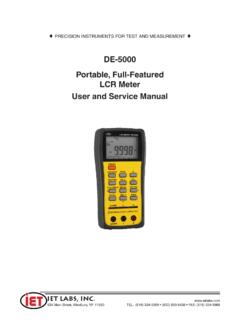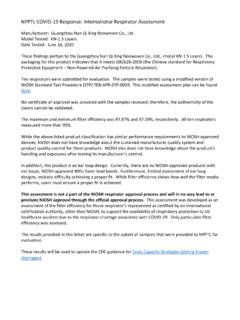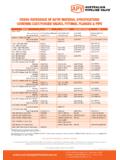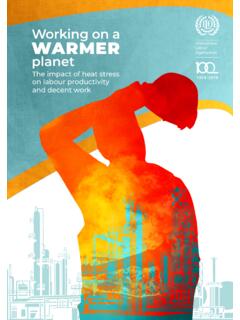Transcription of resin selection guide for corrosion resistance
1 resin selection guide for corrosion resistance derakane epoxy vinyl ester resinschemical resistance for FRP applications 2contentsforeword ..4brief product description ..5how to use the chemical resistance table ..6special cases ..9mixtures of alternating environments ..10derakane epoxy vinyl ester resins special resistance inquiry form ..11chemical name/cas numbers ..12chemical resistance table: maximum service temperatures for derakane , derakane momentum , and derakane signia resins ..14 4derakane chemical resistance guide Derakane , Derakane Momentum , and Derakane Signia epoxy vinyl ester resins (from this point forward referred to as Derakane resins) are designed and manufactured by Ashland.
2 These resins possess outstanding corrosion -resistant properties and satisfy critical requirements in Fiber-Reinforced Plastic (FRP). Because they possess outstanding corrosion -resistant properties, Derakane resins are particularly well suited for demanding industrial guide briefly describes the various Derakane resins, and it presents detailed chemical resistance data needed to assist engineers in specifying and designing corrosion -resistant FRP applications. Recommendations given in this guide apply to state-of-the-art corrosion -resistant structures. Typically, these structures have a corrosion barrier that is to mm (100 to 250 mil) thick and are designed for contact with a specific chemical environment.
3 The first layer of the corrosion barrier usually is to mm (10 to 20 mil) thick and is 95% resin , reinforced by one or two surfacing veils. This layer is then backed with 2 to 6 mm (90 to 230 mil) of 75% resin , reinforced with chopped strand mat (powder binder only). Finally, the corrosion barrier is backed with a structural laminate that provides the strength and stiffness for the overall corrosion -resistant composite many of the variables that affect the performance of a laminate are beyond Ashland s control, no warranty concerning the use of Derakane epoxy vinyl ester resins can be made. However, the service conditions shown in this bulletin are believed to be well within the capabilities of Derakane epoxy vinyl ester resins when laminates are properly designed, fabricated, and installed.
4 For the design of FRP equipment, prospective users of Derakane resins should refer to the appropriate industry standards and design more information, contact Ashland Technical Service at or by visiting Derakane 411 series resins are the globally recognized standard for epoxy vinyl ester resins. They are based on bisphenol-A epoxy resin , and they provide resistance to a wide range of acids, alkalis, bleaches and solvents for use in many chemical processing applications. They offer excellent toughness and fatigue 441-400 resins are low styrene monomer bisphenol-A epoxy vinyl ester resins with mechanical, thermal and chemical resistance properties between Derakane 411 and Derakane 470 resins.
5 Their unique combination of high HDT and elongation makes them the resins of choice for applications with thermal cycling, , for chemical reaction 451-400 resin is a low viscosity, unpromoted novolac epoxy vinyl ester. This product allows the use of standard MEKP, exhibits excellent exotherm control and industry-leading storage stability. It offers exceptional hot water, solvent and acid resistance , excellent impact strength and high heat resistance and tensile elongation.* The degree of retardance achieved in properly formulated cured products made of these resins is most frequently quantified by the ASTM E84 tunnel test. This is a controlled test that compares flammability characteristics of one material with another, but may not be predictive of behavior in a real fire situation.
6 Derakane and Derakane Momentum epoxy vinyl ester resins are organic materials and will burn under the right conditions of heat and oxygen product descriptionDerakane 455-400 resin is an unpromoted, highly crosslinked novolac epoxy vinyl ester. This product allows the use of standard MEKP, exhibits excellent exotherm control, and industry-leading storage stability. Derakane 455-400 resin contains less than 35% styrene and offers a higher heat distortion temperature compared to Derakane 451-400 resin . It also exhibits excellent solvent and acid resistance as well as high flexural strength and heat 470 series resins are epoxy novolac based vinyl ester resins designed to provide exceptional thermal and chemical resistance properties.
7 They offer high resistance to solvents, acids, and oxidizing substances such as chlorine. They also offer high retention of strength and toughness at elevated temperatures, making them the resins of choice for flue gas 510A/B/C series resins are brominated epoxy vinyl ester resins that offer a high degree of fire retardance1. They are very resistant to chemical attack by chlorine and bleach environments. Their bromine content makes them tougher and more fatigue resistant than standard epoxy vinyl ester 510N resin is a brominated epoxy novolac vinyl ester resin that offers a high degree of fire retardance*. It exhibits a corrosion resistance similar to Derakane 470 resins in most environments.
8 It is also useful in hot, wet flue gas environments where thermal upsets can occur and where fire retardance is desired. This product is only available from North 515-400 resin is a brominated, low viscosity, unpromoted, flame retardant epoxy vinyl ester resin . This product allows the use of standard MEKP, exhibits excellent exotherm control, and industry leading storage stability. It addition to excellent flame retardancy, it offers excellent thermal shock resistance and corrosion resistance to acids and oxidizers. It is well-suited for caustic/chlorine and power industry 8084 resin is an elastomer-modified bisphenol-A epoxy vinyl ester resin that offers very high toughness, impact and fatigue resistance and excellent adhesion.
9 It is the resin of choice for demanding structural applications and as a primer for chemically resistant FRP linings. 6how to use the chemical resistance tablecontentThis listing of chemical reagents and environments shows the highest known temperature at which equipment made with Derakane resins has, in general, either: given good service in industry or been tested in the field or in the laboratory (in accordance with ASTM C 581) with results that indicate a good life expectancy in serviceIt should be noted that this is not necessarily the maximum service temperature limits in each column are representative of the whole family of resins ( , the Derakane 411 resins column applies to Derakane 411, Derakane Momentum 411, and Derakane Signia 411 resins).
10 Each series of Derakane resins is based on the same epoxy (or novolac) vinyl ester resin backbone. Improvements have been made over the years for processing and stability as seen in our recent introduction of the Derakane Signia resins. For example, Derakane 411-350, Derakane Momentum 411-350, and Derakane Signia 411-350 resins each are based on the same polymer backbone and comparison studies confirm that their performance in corrosive environments is essentially equivalent. corrosion data and case history information for each series of Derakane 411 resins can be applied to the entire family of Derakane 411 resins. 8 Double surfacing veil and a 5mm/200mil weight - % not no data highest CR barrier should be used unless otherwise recommended available recommended stated temperature ( C/ F)9 Double C-veil should be used in the CR barrier13 Acid resistant glass should be used in the corrosion liner and may be used in the structural wall15 Solution may discolorIn the chemical resistance tables, a blank space indicates that no data was available at the time that temperature ratings were stands for not recommended at any stands for limited service (at least 3 days to 1 year at maximum 40 C/100 F).
